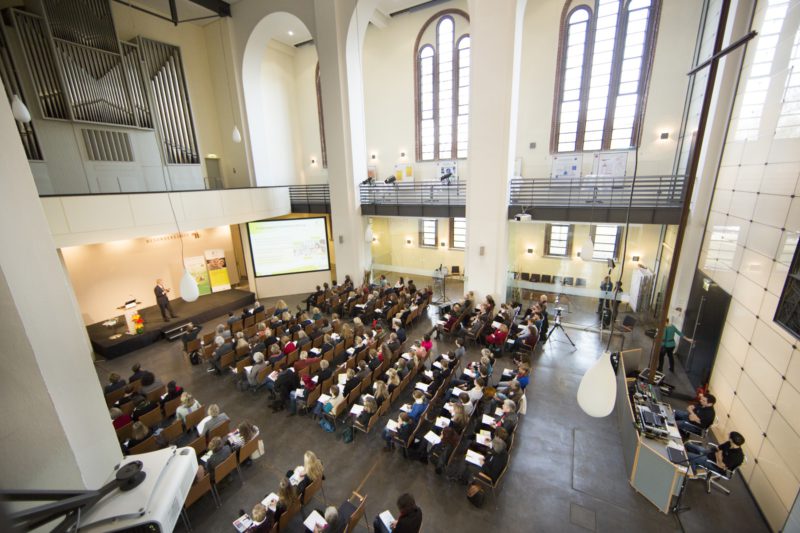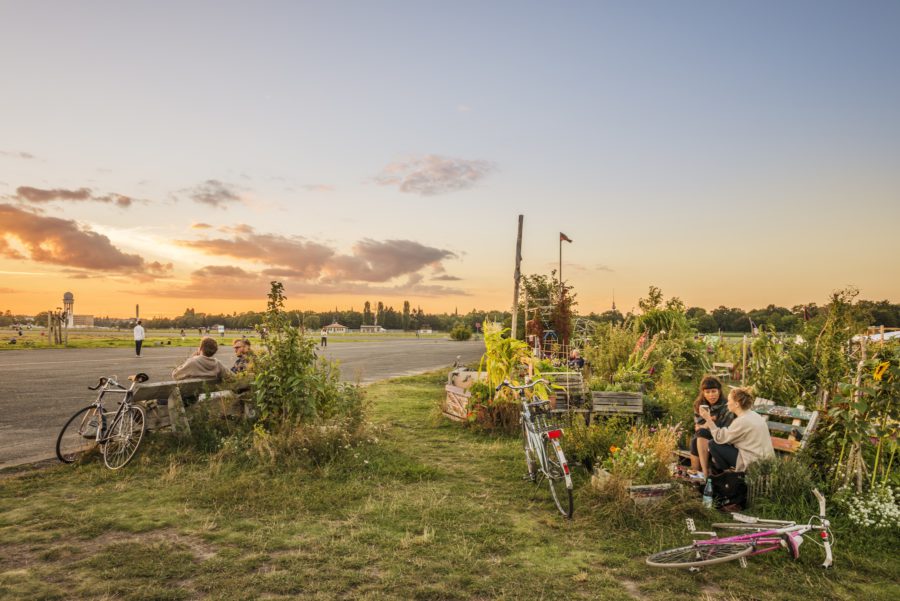Calling Berlin a “green” capital is an understatement. The city’s largest park, Tiergarten, sprawls right across the center—and is even home to a boating lake, beer gardens and the Berlin Zoo. But to see beyond the “cool” Berlin that everyone’s talking about, we needed to stroll the city’s streets ourselves. And Meeting Place Berlin – a mega fam trip organized by Visit Berlin every two years – was a real eye-opener in terms of how green meetings are treated in the city. Sustainability isn’t an illusive concept in Berlin – the whole city is seriously focused on organizing events that truly make a difference for everyone involved.
The Berlin Convention Office of visitBerlin has launched a dedicated programme for meeting planners whose vision aligns with that of the German capital. The aim: become one of the most innovative and sustainable destinations for events of all sizes and formats.
The idea is to make life easier for planners, so they have all the information they need on Berlin’s sustainable options—including hotels, venues, convention centres and any supplier who is a member of Berlin’s strong partner network. To ease the process, the Berlin Convention Office set up a Sustainable Meetings Berlin online platform earlier this year where associations can find all kinds of information relating to sustainable conferences, congresses, meetings and events in Berlin.
“Our vision is to make Berlin one of the most sustainable congress destinations in Europe,” says Iris Lanz, Director Conventions, visitBerlin, Berlin Convention Office. “That’s an ambitious goal – and it can only be achieved with our many partners in the city. But we have gained large-scale support on a political level, and it really helps to make a difference.”
In addition to sustainable options, planners are strongly encouraged to plan sustainably. “Our online platform is clearly a unique development that allows us to support planners and provide them with the right services and information every step of the way,” Lanz explains. “For example, we have collected tips on how every event can be made greener. At the moment, such services are still niche products in the meetings industry. But Sustainable Meetings Berlin has started spotlighting them, which has raised our profile as a ‘different’ convention destination.”
Green spaces
In Berlin, there are plenty of venues that have received the city’s green stamp of approval. For instance, the Umweltforum (which translates to ‘environmental forum’), a former church near Alexanderplatz (pictured below), is a flagship project when it comes to ecological building that can host events for up to 400 people. A photovoltaic system and a combined heat and power unit (CHP) produces electricity for the building, while the façade is composed of a giant solar panel. The building is equipped with other environmentally friendly devices, too, like a condensing gas boiler and loam-rendered walls. In fact, 100 percent of the electricity in the conference rooms is produced via renewable energy sources—and there are 10 beehives on the roof.
Even the capital’s largest hotel, Hotel Berlin, Berlin doesn’t take sustainability lightly. Crowning a street corner in the city centre, the hotel has a modern look—and a modern outlook. As one of only five hotels to be a certified partner of Berlin’s Sustainable Meetings initiative, the hotel boasts impressive eco-conscious credentials. And it’s easy to go green when travelling with public transport on the metro to the hotel, too. As a Green Key label holder – which means the hotel follows strict criteria set by the Foundation for Environmental Education – it’s a great choice for sustainable events, since it features 48 meeting rooms — the largest of which accommodates up to 550 people.
Aside from using renewable energies (including the required 10 percent by Green Key, produced by its own rooftop photovoltaic system), Hotel Berlin has implemented a number of water and energy-saving measures. It also continually monitors its carbon footprint, pollution causers, and waste, looking for ways to reduce CO2emissions and consumption.
These hotels are only two of the many examples. Since sustainability in event planning is now a must, Berlin is a city where planners are truly spoiled for choice. “Our congress and event sector is rich in resources and personnel, and for that reason alone it bears a special responsibility—and that is a strong factor in Berlin’s commitment to sustainability,” Lanzsays. “With Sustainable Meetings Berlin, we can pursue a path to greater sustainability.”
Contact www.convention.visitBerlin.de | convention@visitBerlin.de – This article was written by Boardroom chief editor Remi Deve. The right to use, part or all of it in subsequent works has to be granted by the Publisher.

